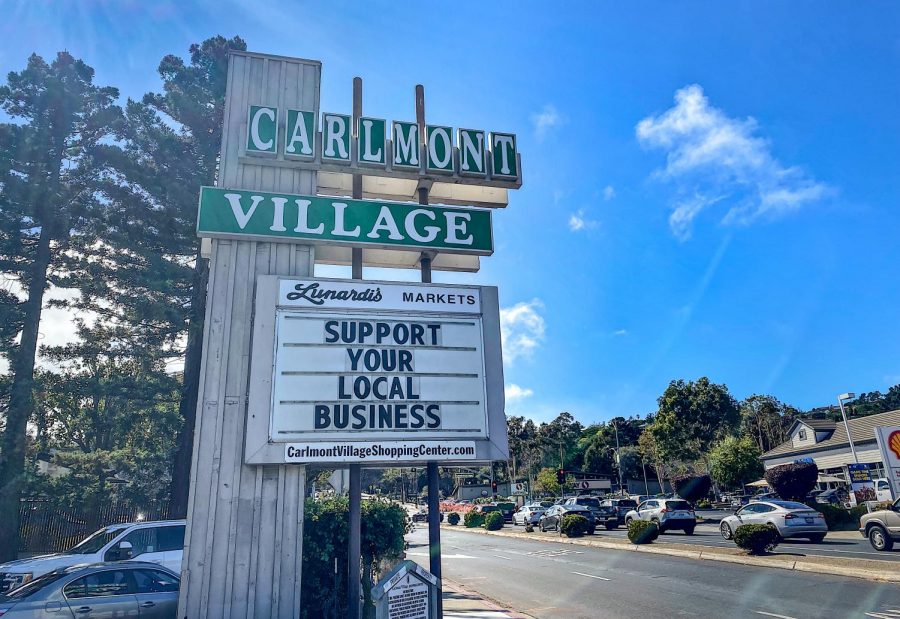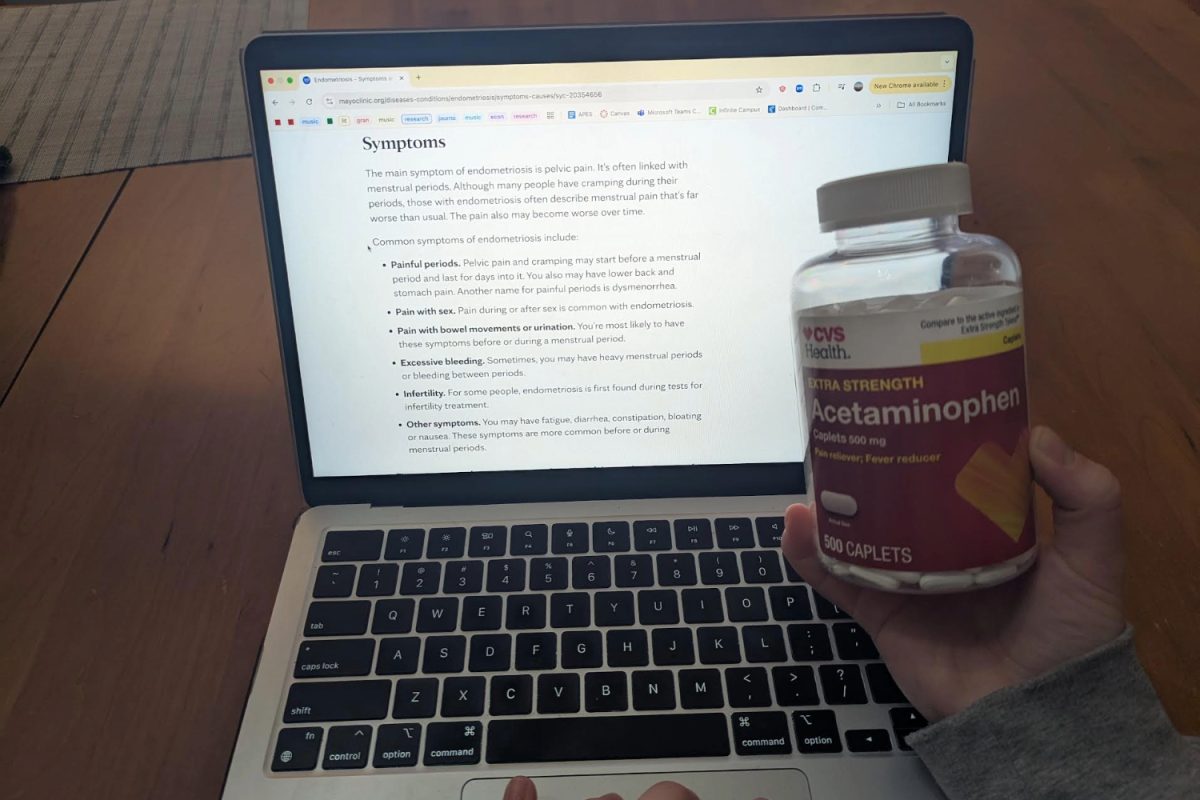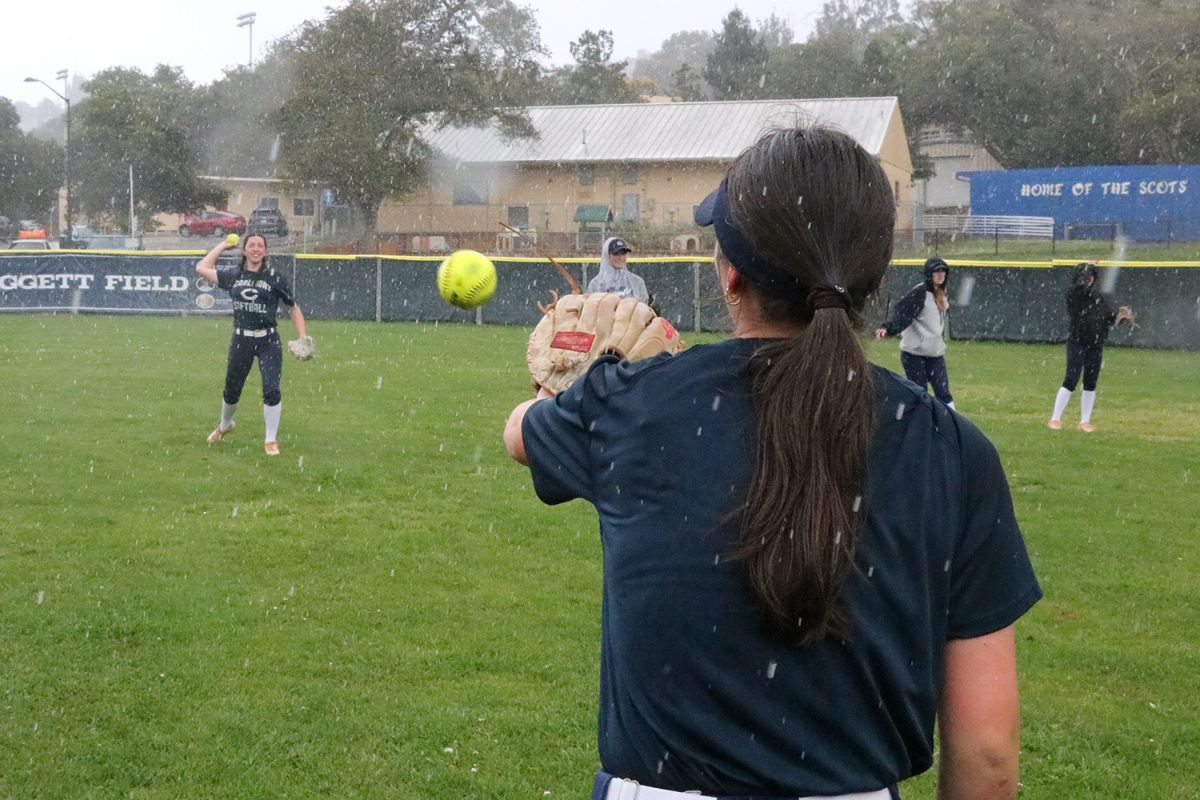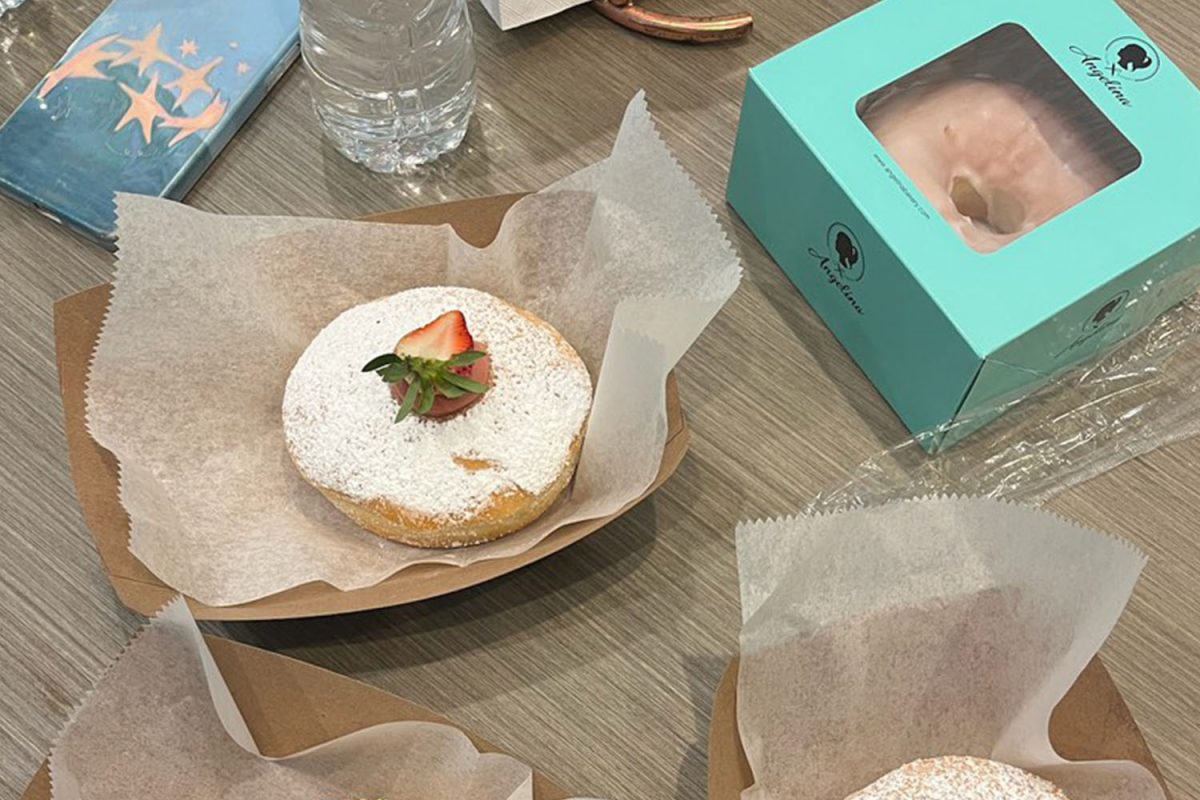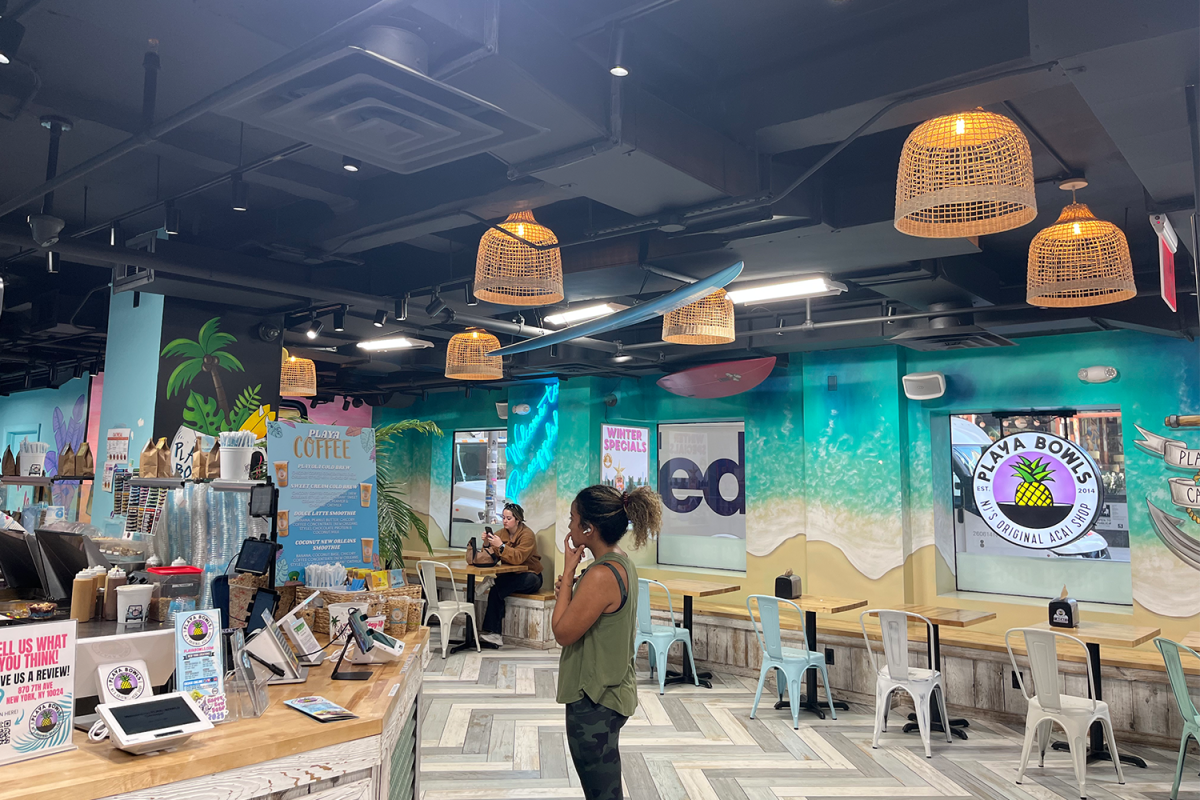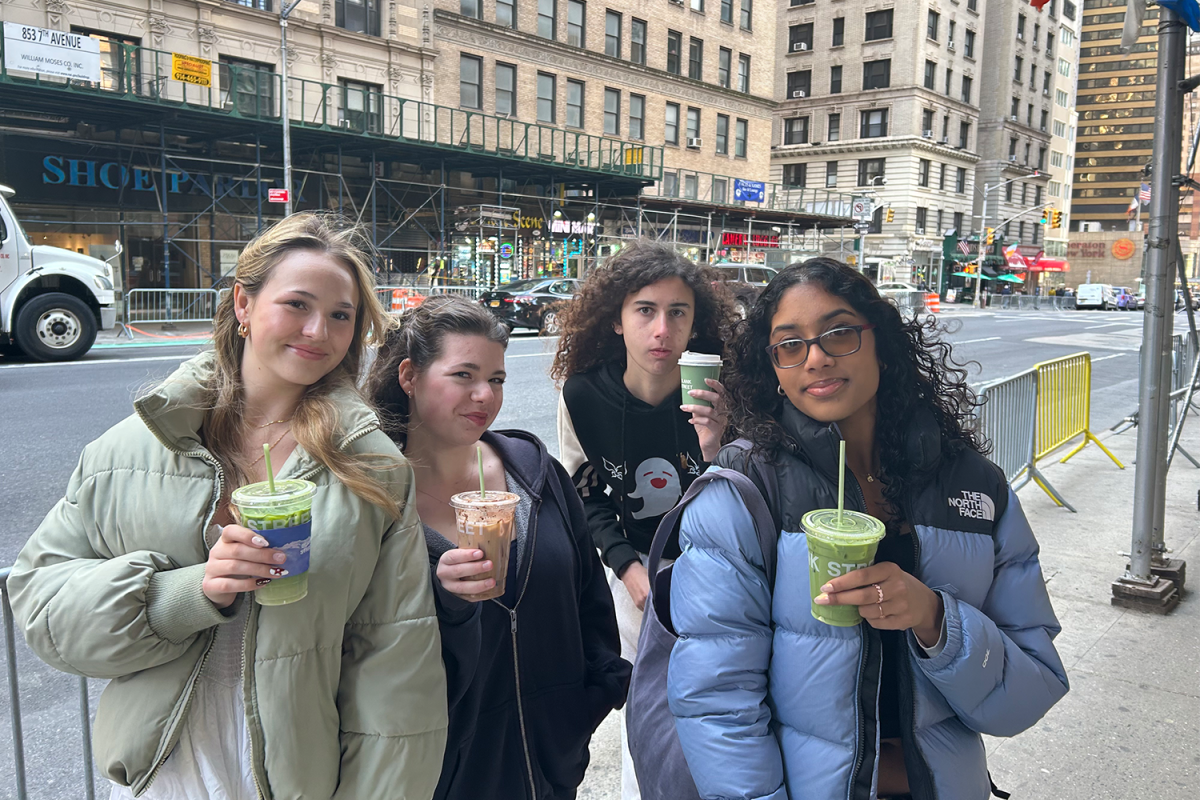Whether it be a quick bite before school or a midday snack after a tiresome day, numerous students have paid a visit to the Carlmont Shopping Center within the past month after returning to in-person learning.
The stores around and at the local shopping center have recently experienced rapid growth in business due to the increased amount of consumers on campus. Store owners are grateful for the pick-up in business within the past month, with students being a substantial contributing factor to the relief that the shops feel.
“We feel happier with school back. There have been a lot of people outside every day, and we have seen a huge difference compared to last year within the last month,” Doris Du, an employee at Ya-Ua Boba Tea, said.
Due to a shortage of customers during the COVID-19 pandemic, numerous businesses across the United States have failed to make a profit in recent months. An even more significant decline befell the stores at the Carlmont Shopping Center since many customers of the businesses at the Carlmont Shopping Center are students from surrounding schools. With most of the 2020-2021 school year taking place online, the absence of students on nearby campuses took away the usual bustling crowds.
Ya-Ua Boba Tea in Belmont has been serving customers for over ten years and experienced a drastic drop in sales in 2020. The lack of student customers during the pandemic severely impacted the boba shop.
“When there wasn’t school, business was slow; the store was almost always empty. During the pandemic, we only got 25% of the usual business. It was a hard year,” Du said.
Although there are citizens who live near the shopping center and visited the stores throughout the duration of the pandemic, Du observed that the local contributions are incomparable with student consumers. Student contribution makes up 75% of Ya-Ua Boba Tea’s overall income. After the unsettling economic year, the sky-rocketing business that came with the new school cycle has immensely relieved the Du family-owned Ya-Ua Boba Tea shop.
In addition to those owning locally owned businesses, the workers at larger establishments are also affected by local schools returning to in-person learning.
Andreas Christoforidis, an employee at the Jamba Juice in the Carlmont Shopping Center for over two years, has noticed a drastic difference in the last month compared to previous years. The age of the consumers frequenting the establishment and the number of people coming in has transformed throughout August as the most busy hours in the day have shifted to after nearby schools conclude.
“[Business] starts up after school, usually around 2:30 [p.m.] when Notre Dame gets out and then keeps going with Carlmont. Around 3:30 to 4:30, [the store] gets real busy,” said Christoforidis.
Students have seemingly repopulated the once empty stores; anyone driving by the scene during the after-school hours can witness the packed crowds for themselves.
Mariana Panisset, a sophomore at Carlmont high school, is an active consumer at the shopping center.
Similar to other students, she too started visiting the businesses at the shopping center during the last month.
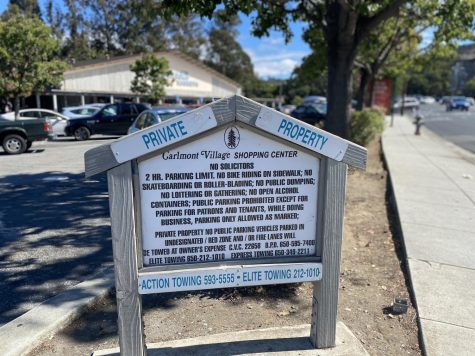
“I go to [Jamba Juice] three to four times a week for breakfast. I also go there once a week after school,” Panisset said. “I only go now because school started; I didn’t use to go before.”
Last year, students oftentimes wouldn’t go out of their way to visit the shopping center, which contributed greatly to a decline in revenue for businesses. The position of the shopping center, which is located down the street from Carlmont’s campus, makes the stores easily accessible to teenage visitors before and after school hours.
The return to in-person learning has significantly raised the once declining revenue, and establishments can now depend on student business for the foreseeable future. When following the consistent trends of the recently booming businesses, stores near school campuses can expect a steady stream of business as long as students are still returning to campus daily.
“Last year, it was all nice and fun, but we’re back to business now,” Christoforidis said.

